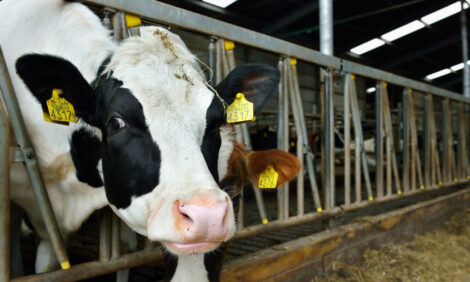



How to reduce food waste by extending shelf life
Kerry's Food Waste Estimator is a user-friendly tool for food producers and consumers alike, providing helpful insights on how to begin reducing waste in the home
“Is this bread still good?”
“I don’t know — check the expiration date.”
“Use by,” “Sell by” and “Best by” dates on food packaging can be helpful indicators of how long a consumer can store a food item before eating, but often these dates lead to high quantities of wasted food.
About one-fifth of food produced for human consumption is discarded before it can be eaten, equating to 1 billion meals a day and contributing to global food insecurity.
New research from the University of Georgia Department of Food Science and Technology suggests that extending shelf life is an effective strategy for food waste reduction and conserving resources. The study was performed in collaboration with food and beverage research and development firm Kerry Inc., developer of the Kerry Food Waste Estimator, a digital tool that can help consumers and manufacturers make more informed choices about waste reduction.
Extending shelf life to reduce food waste
After acquiring the food additive company Niacet in 2021, professionals from Kerry joined researchers from the lab of Kevin Mis Solval, an associate professor in the College of Agricultural and Environmental Sciences, to study how extending food shelf life using natural or organic salts and other strategies may contribute to food waste reduction. Their findings suggest that shelf-life extension not only reduces food waste but also “delivers measurable environmental benefits and resource savings,” according to a press release from the company.
“Our findings bridge scientific expertise with real-world industry applications, driving meaningful change to increase food security and sustainability on a global scale,” said Vondel Reyes, first author of the study and a research professional in Mis Solval’s lab.
With this research, food shelf-life extension has the potential to create real change in how people conserve and store food. In developing markets where making staple foods is a daily task and warmer climates where food spoilage is common, foods that have more longevity and are easily preserved can enhance economic opportunities by reducing food preparation tasks and lower environmental impact.
“This peer-reviewed research provides scientific insights into how shelf life may effectively reduce food waste, and credibility to the methodology with which we demonstrate the incremental impact per added shelf-life day as a percent increase,” Mis Solval said.
Kerry Food Waste Estimator
Launched in 2022, the Kerry Food Waste Estimator is a user-friendly tool for food producers and consumers alike, providing helpful insights on how to begin reducing waste in the home.
Mis Solval and his team began working with Kerry Inc. in 2023, providing ideas and methods to validate the new tool’s potential. They tested the Food Waste Estimator against two scenarios involving potential food waste reduction if the percentage of product wasted was known or unknown, and in two foods, bread and poultry.
The results of the study showed that “regardless of the difference between the two case studies modeled, using the food waste estimator constructed on the principle of shelf-life extension may help reduce food waste and negative environmental impacts while also making a positive contribution to social equity.”
For manufacturers, the estimator guides the user to enter product type, region, production volume and current waste data to calculate how much waste can be reduced and how to more efficiently use their resources. Similarly, the estimator factors household size and weekly grocery budget to show the consumer the environmental benefits of reducing food waste.
“The Kerry Food Waste Estimator empowers both manufacturers and consumers to make impactful decisions that significantly reduce food waste and drive sustainability forward,” said Emma Cahill, global marketing director at Kerry. “With UGA’s validation, this tool is pivotal in optimizing resources, conserving the environment, and advancing food security.”
For more information or to try out the tool, visit explore.kerry.com/food-waste-estimator. Learn more about the SMART Food Processing Lab under Mis Solval at site.caes.uga.edu/smartfoodprocessinglab.


